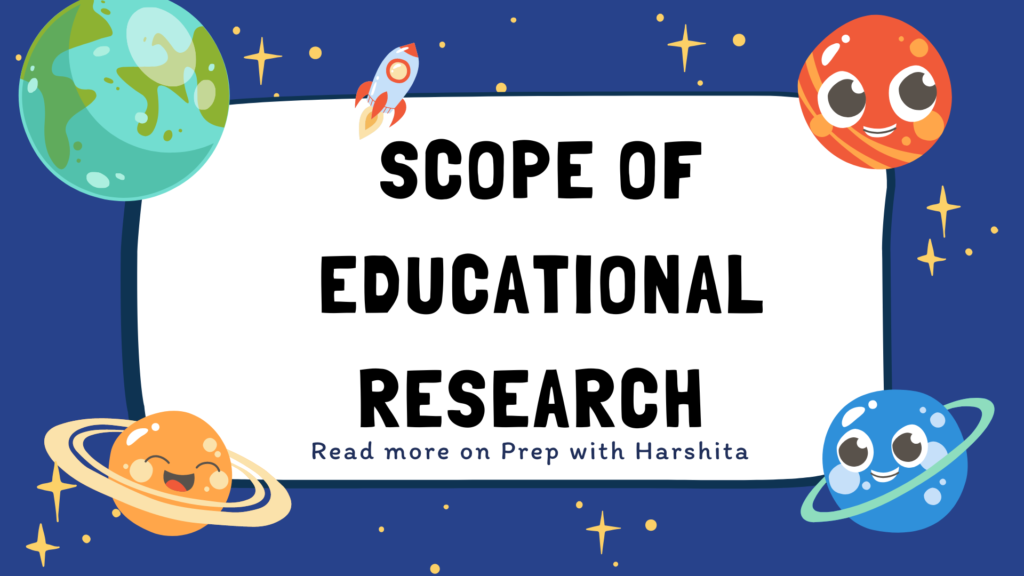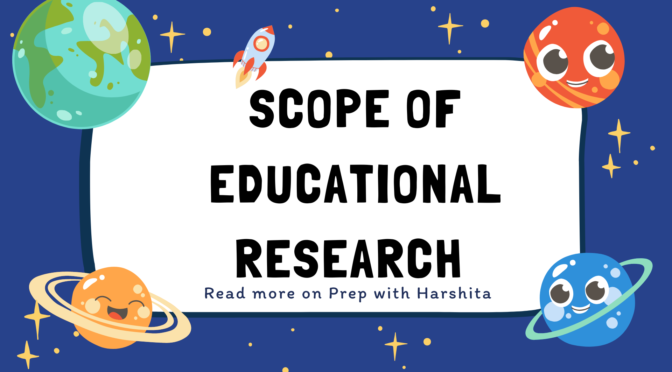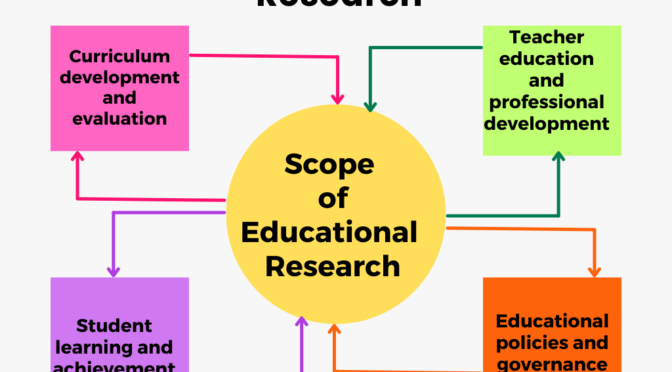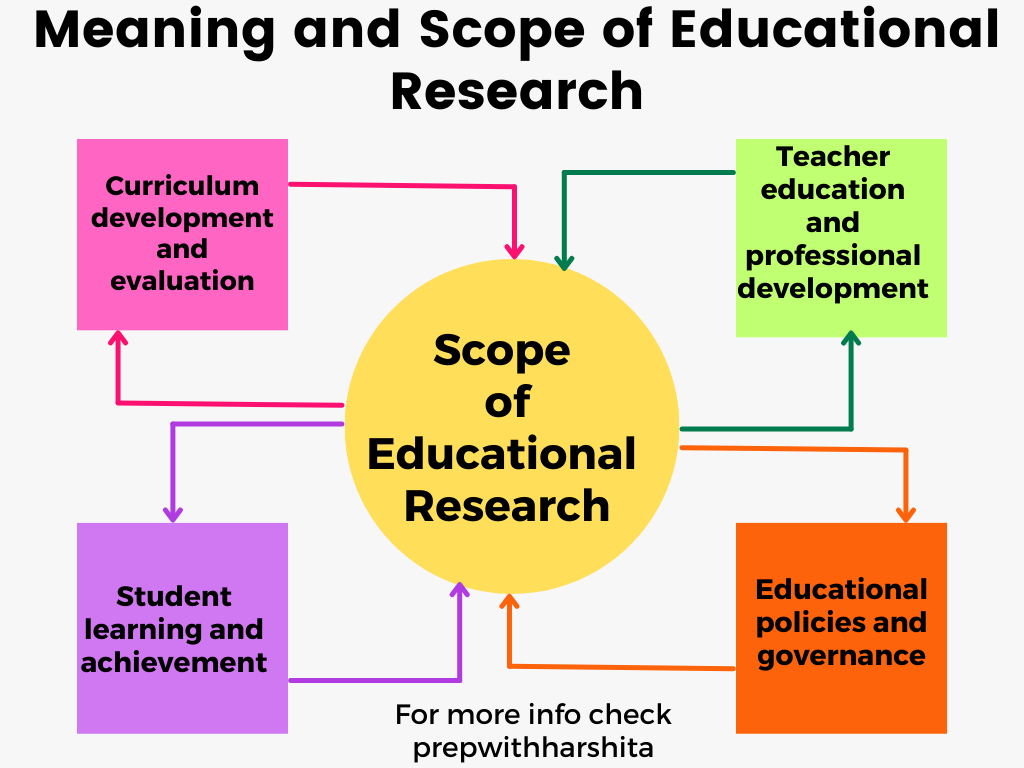The scope of educational research is vast and encompasses a wide range of topics and areas within the field of education. Here is a more detailed exploration of the scope of educational research:
- Teaching and Learning:
- Effective teaching methods and pedagogical strategies
- Classroom management and discipline
- Student engagement and motivation
- Differentiated instruction and individualized learning
- Teaching approaches for specific subjects or disciplines
- Strategies for promoting critical thinking, problem-solving, and creativity
- Assessment and feedback practices to support learning
- Curriculum Development and Assessment:
- Curriculum design and development
- Alignment of curriculum with learning objectives and standards
- Curriculum evaluation and improvement
- Assessment methods and techniques
- Standardized testing and its impact on teaching and learning
- Alternative assessment approaches (e.g., portfolios, performance-based assessments)
- Curriculum differentiation for diverse learners and special education
- Educational Policies and Reforms:
- Impact of educational policies on teaching and learning
- Equity and access in education
- Educational funding and resource allocation
- School governance and leadership models
- School choice and voucher programs
- Accountability measures and their effects on student outcomes
- Policy implementation and evaluation
- Educational Technology:
- Integration of technology in teaching and learning
- E-learning and online education
- Technology-enhanced instructional strategies
- Educational software and learning management systems
- Digital literacy and digital citizenship
- Use of educational apps, simulations, and virtual reality in education
- Blended learning approaches and flipped classrooms
- Special Education and Inclusive Practices:
- Inclusive education for students with disabilities and special educational needs
- Individualized Education Programs (IEPs)
- Response to Intervention (RTI) models
- Effective interventions and accommodations for diverse learners
- Assistive technology for students with disabilities
- Inclusion policies and practices
- Teacher preparation and support for inclusive education
- Teacher Professional Development:
- Pre-service and in-service teacher training
- Teacher induction and mentoring programs
- Professional learning communities
- Teacher efficacy and self-reflection
- Teacher evaluation and performance assessment
- Continuing professional development and lifelong learning
- Teacher collaboration and peer coaching
- Educational Leadership and School Improvement:
- School leadership and management practices
- Distributed leadership models
- School climate and culture
- School improvement plans and strategies
- Effective school and classroom organization
- Family and community engagement in schools
- Teacher leadership and its impact on school improvement
- Educational Psychology:
- Cognitive processes in learning
- Learning theories and their application in education
- Student motivation and engagement
- Self-regulated learning and metacognition
- Social and emotional factors influencing learning
- Student well-being and mental health in educational settings
- Learning styles and individual differences
- Higher Education and Adult Learning:
- College and university teaching and learning
- Transition and retention of students in higher education
- Academic advising and student support services
- Lifelong learning and continuing education
- Online and distance education in higher education
- Workforce development and vocational education
- Graduate education and research training
- Guidance and Counselling
- Philosophy of Education
- Sociology of Education
- Comparative Education
These are just a few examples within the scope of educational research. Educational researchers employ various research methods, including quantitative, qualitative, and mixed methods approaches, to investigate these topics. The findings and insights generated from educational research contribute to evidence-informed practices, policy decisions, and advancements in education, ultimately aiming to improve educational outcomes for learners at all levels.
Also Visit : Prep with Harshita

Also Read : Quantitative Research and Qualitative Research



